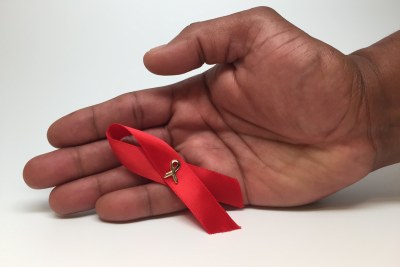-
Africa: Drug Could Beat Back HIV - If People Could Get It
Global Press Journal, 20 December 2022
Cabotegravir is a promising HIV prevention medication that's approved in countries like the United States. But in sub-Saharan Africa, access encounters a number of hurdles. Read more »
-
Kenya: Major Boost for HIV Response as Kenya Elected Vice Chair of Key UNAIDS Agency
Capital FM, 20 December 2022
The country's HIV war has received a major boost after the country was elected vice chair of the UNAIDS Programme Coordination Board, putting it firmly on the decision table of the… Read more »
-
New Zimbabwe, 16 December 2022
A recent survey among people most vulnerable to HIV/AIDS and Tuberculosis (TB) has shown that illegal use of banned substances is rife. Read more »
-
Uganda: HIV/Aids Injectable Treatment Drug
Independent (Kampala), 12 December 2022
Researchers of the vaccine programme at Uganda Virus Research Institute (UVRI) will start conducting a study among females below 25 years to assess the efficacy of Lenacapavir, an… Read more »
-
Ghana: Attach Importance to Plight of Orphans Living With HIV/Aids
Ghanaian Times, 8 December 2022
An HIV and AIDS Ambassador, Reverend John Azumah has urged government to attach prominence to the plight of orphans living with HIV and AIDS in the national HIV policy. Read more »
This Drug Could Beat Back HIV - If People Could Get It
Cabotegravir is a promising HIV prevention medication that's approved in countries like the United States. But in sub-Saharan Africa, access encounters a number of hurdles.
Cabotegravir was successfully tested in adults in seven sub-Saharan African countries, including Uganda, in trials that ended in 2020. The World Health Organization has endorsed it, and United States regulators have cleared it for use with a doctor's prescription. But Annet still can't get it. No Ugandan can. That's because the drug remains tied up in the country's regulatory process.
Across Africa, drug approval often takes substantially longer than in the U.S. and Europe. The timeline from first submission of a drug to final approval in the U.S. is usually less than a year. In some southern African countries, the same process stretches as long as two-and-a-half years for generic drugs, even though they are replicas of established products, according to a study by Frontiers in Medicine, an international medical journal. Other research suggests the delays may be even longer. Researchers blame a lack of resources and expertise at African regulatory bodies and a failure to piggyback on efforts by other agencies.
The holdups can rob Africans of access to safe and affordable medicine, and put vulnerable groups at risk for longer than necessary. In the case of cabotegravir, the lag time may also hamper the Ugandan government's ambitious HIV-prevention targets - including ending new infections by 2030 - as the drug is one of the best prospects for stopping transmission in high-risk groups, such as sex workers. "Cabotegravir would help the country achieve its goal," says Nelson Musoba, general director of the Uganda Aids Commission, writes Nakisanze Segawa for Global Press Journal.
InFocus
-
South Africa is expected to begin piloting the HIV prevention injection early next year as one of several projects that experts hope will reveal the answers to some of the biggest ... Read more »
-
The world is not on track to end the Aids pandemic. Inequalities will prevent the world from meeting agreed on global targets on Aids, but a "feminist route map" can get countries ... Read more »
-
Ugandan Civil Society Organisations (CSOs) under the auspices of the Uganda Coalition for Access to Essential Medicines, have petitioned the health ministry over the shortage of ... Read more »
-
Curdlan is a popular carbohydrate in the food industry. Its name is derived from the word "curdle", and as it suggests, it's widely used as a thickener and stabiliser in everything ... Read more »
-
As the International AIDS Conference - AIDS2022 - in Montreal comes to a close, UNAIDS Executive Director Winnie Byanyima has commended the dedication of thousands Read more »








